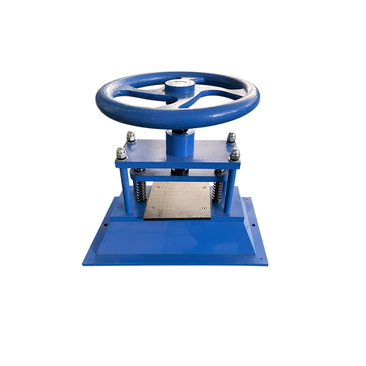High Voltage Spark Tester for Power Frequency Testing and Safety Assessment
Understanding Power Frequency Spark Testers
In the realm of electrical testing, various tools and equipment are essential for ensuring the safety and reliability of electrical systems. One such vital piece of instrumentation is the power frequency spark tester. This device plays a crucial role in quality control and assurance, particularly in industries involving electrical insulation and equipment testing.
What is a Power Frequency Spark Tester?
A power frequency spark tester is a device used to assess the integrity of electrical insulation in various components, including cables, transformers, and other electrical devices. It generates a high-voltage AC signal, typically at the utility frequency of 50 or 60 Hz, which is then applied to the insulation material. The primary purpose of this test is to identify any weaknesses or breakdowns in insulation that could lead to electrical failures, short circuits, or even catastrophic equipment failure.
How Does it Work?
The operation of a power frequency spark tester is relatively straightforward. The tester applies voltage across the insulation material and monitors for any leakage current or breakdown events. If the insulation is functioning correctly, the high voltage will not cause any current to pass through, demonstrating that the insulation can withstand the applied stress. In contrast, if the insulation has defect or degradation, the tester will detect a surge in current, indicating that the insulation is compromised.
Key parameters during testing include
1. Voltage Level The voltage applied during the test is typically several times higher than the normal operating voltage of the equipment, ensuring that any potential weaknesses are highlighted.
2. Test Duration The duration for which the voltage is applied can vary, but it usually lasts several seconds to ensure accurate readings.
3. Observation of Results The tester provides visual or audible alerts, based on whether the insulation passes or fails the test.
Applications
power frequency spark tester

Power frequency spark testers are used in various applications, including
- Cable Testing Electrical cables are crucial in any electrical system. Spark testers help ensure cables can handle expected loads without insulation failure.
- Transformer Testing Insulation in transformers must remain intact to prevent failures that can lead to significant damage and downtime.
- Electrical Equipment Testing Any electrical equipment, from motors to generators, undergoes testing to guarantee safety and operational efficiency.
Importance of Testing
Testing electrical insulation with a power frequency spark tester is essential for several reasons
1. Safety Insulation failures can lead to electrical shocks, fires, or explosions, posing severe risks to both personnel and equipment. Regular testing can mitigate these risks.
2. Equipment Reliability Continual monitoring and testing of insulation help predict failures, allowing for timely maintenance or replacements, thus enhancing the overall reliability of the electrical systems.
3. Regulatory Compliance Many industries are subject to strict regulations regarding electrical safety. Using a spark tester helps organizations adhere to these standards, avoiding potential fines and ensuring safe operations.
Conclusion
In summary, power frequency spark testers are indispensable tools in the electrical testing universe, providing valuable insights into the integrity of insulation in various electrical devices. By applying high voltage and assessing insulation performance, these testers contribute to safer and more efficient electrical systems. Regular testing not only enhances safety but also ensures compliance with industry standards, ultimately supporting the longevity and reliability of electrical equipment. As technology advances, the role of such testers in maintaining electrical safety will only become more critical, making understanding and utilizing these devices essential for electrical professionals.
-
Why the Conductor Resistance Constant Temperature Measurement Machine Redefines Precision
NewsJun.20,2025
-
Reliable Testing Starts Here: Why the High Insulation Resistance Measuring Instrument Is a Must-Have
NewsJun.20,2025
-
Flexible Cable Flexing Test Equipment: The Precision Standard for Cable Durability and Performance Testing
NewsJun.20,2025
-
Digital Measurement Projector: Precision Visualization for Modern Manufacturing
NewsJun.20,2025
-
Computer Control Electronic Tensile Tester: Precision and Power for the Modern Metal Industry
NewsJun.20,2025
-
Cable Spark Tester: Your Ultimate Insulation Assurance for Wire and Cable Testing
NewsJun.20,2025
 Copyright © 2025 Hebei Fangyuan Instrument & Equipment Co.,Ltd. All Rights Reserved. Sitemap | Privacy Policy
Copyright © 2025 Hebei Fangyuan Instrument & Equipment Co.,Ltd. All Rights Reserved. Sitemap | Privacy Policy
